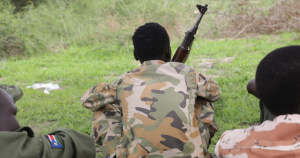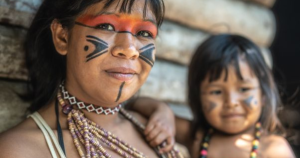Bangladesh was born in violence. The civil war between those who wanted the country to remain as East Pakistan were ranged against those who sought independence. The Liberation War as it is now known, left according to many estimates nearly three million dead, a death toll higher than the Rwandan Genocide, the Yugoslav wars of the 1990s and the Sierra Leonean and Liberian civil wars all put together.
As it is beyond doubt crimes were committed on a massive scale in Bangladesh and many of the victims as well as perpetrators of serious crimes are still alive, it is still possible to bring to justice those from all sides accused of committing atrocities during the conflict. As the trial of Charles Taylor, former President of Liberia, by the Special Court for Sierra Leone for which I was Chief Prosecutor underlines is the need to ensure the hammer of international justice is seen to be brought down on those who commit the most egregious crimes by impartial and independent judges.
In 2010 I was approached by Stephen Rapp, the US Government’s Ambassador for War Crimes and colleague who succeeded me as Chief Prosecutor in Sierra Leone to enquire if I would assist the efforts of a new, locally formed “International Crimes Tribunal” in Bangladesh to meet international standards. After reviewing of the laws and regulations of this new court, I declined.
What was clear then, and even clearer now, is Bangladesh does not have the independent judicial and investigative capacity to conduct trials of international crimes. The rules and procedure of the Court are simply not consistent with international standards as followed by the Special Court for Sierra Leone and similar bodies. Far from this being a personal view, many others, including international legal and human rights organisations have reached the same conclusion. Human Rights Watch, to take but one example, has described the Tribunal as “riddled with questions about the independence and impartiality of the judges and fairness of the process”. This is a deeply disturbing assessment.
The current government of Bangladesh led by Prime Minister Sheikh Hasina and her Awawi League party are the heirs to those who fought for Bangladeshi independence. Those on trial opposed independence. These trials therefore see the victors of the Liberation War attempting to crush those who lost the conflict. For such a process to be considered just, it must be aimed at independently and impartially bringing to justice all those who are individually criminally responsible, irrespective of nationality, ethnicity or association. Nothing less will suffice. Justice can only be served for victims and survivors of the atrocities of 1971 if perpetrators from all sides are brought to trial.
What is also clear to many inside and outside the country is the government of Bangladesh is not attempting to use the Tribunal to deliver justice for victims, as was their election pledge, but to target its political opposition that it repeatedly labels as anti-liberation.
The extent of their determination was revealed by The Economist last December when that journal published articles based on intercepted Skype calls revealing collusion between judges, government ministers and their legal advisers over sentencing even before the trials had finished. Despite the international criticism these reports triggered, the Tribunal has now handed out two death sentences and several of life imprisonment.
Only by taking the passion and politics out of this story can true justice be delivered. For this reason, powers such as the US and UK – the biggest aid donor to Bangladesh – as well as the UN, should seek to pressure Bangladesh’s leaders to commit to internationalising the trials. The Bangladesh International Crimes Tribunal should be reformed and those cases already heard should be reviewed. If necessary, retrials should be ordered in an international arena. Given the severity of the atrocities committed and the importance of closure for the people of Bangladesh, a stand-alone international tribunal similar to those set up for the former Yugoslavia, Sierra Leone and Rwanda might be most appropriate.
Whichever route is taken, it is only through the internationalisation of this Tribunal, with international legal standards assured, reliable investigations conducted, and credible evidence presented, that both sides of the political divide will see justice delivered. If this is not done, the current politicised International Crimes Tribunal will only have the effect of creating further violence and division without the reconciliation the people of Bangladesh deserve. If the nation of Bangladesh is to heal, both sides need to see justice done and move on from their painful history to a brighter future where impartial justice will prove to be the cornerstone of a real peace.




